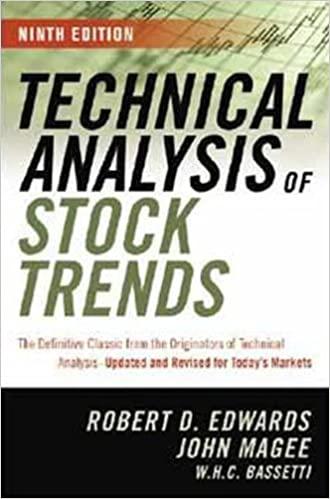Answered step by step
Verified Expert Solution
Question
1 Approved Answer
Business Finance Prof. Andrew Schwartz BFIN 2 2 0 1 Seton Hall University Homework 6 Homework 6 Personal Budget Free cash flow is the amount
Business Finance
Prof. Andrew Schwartz
BFIN
Seton Hall University
Homework
Homework Personal Budget
Free cash flow is the amount of cash that a company has left over after it has paid for all of its expenses.
In other words, it is the amount of money that can be reinvested in naw project or paid out to investors
without having to expand operations or rumning down its existing operations. Discretionary income is
equivalent for individuals. Discretionary income is defined as income available for spending after
subtracting taxes and essential expenses to maintain an individual's current standard of living. In this
assignment, you will be asked to think through your personal spending and how you might construct a budget after you graduate. You will need to consider both required expenses eg taxes, loans, housing
costs, etc. gavings, and discretionary spending.
According to the US Department oBusiness Finance BFIN
Prof. Andrew Schwartz Seton Hall University
Homework
Personal Budget
Free cash flow is the amount of cash that a company has left over after it has paid for all of its expenses. In other words, it is the amount of money that can be reinvested in new project or paid out to investors without having to expand operations or running down its existing operations. Discretionary income is equivalent for individuals. Discretionary income is defined as income available for spending after subtracting taxes and essential expenses to maintain an individuals current standard of living. In this assignment, you will be asked to think through your personal spending and how you might construct a budget after you graduate. You will need to consider both required expenses eg taxes, loans, housing costs, etc. savings, and discretionary spending.
According to the US Department of Education, the average salary of a Stillman School of Business finance major three years after graduation was about $ Assume that is the salary you will make after graduation. Answer the following questions based on the lifestyle youd like to live after graduation.
How much will you pay for health care each year
How much do you plan to save for retirement each year
What is your taxable income for federal income taxes, NJ state income taxes, and FICA?
What is your total annual federal income tax, NJ state income tax, and FICA taxes? What is your average tax rate combined for all three taxes
What will be your monthly takehome pay after health care, retirement savings, and taxes
List and estimate your essential expenses per month. These are expenses that are necessary for living and to pay off debts. Examples include rent, student or car loan payments, car insurance, utilities, groceries, etc.
List and estimate your discretionary purchases per month. These purchases are expenses you dont need to survive but bring you joy. Examples include gym fees, salons, movies, streaming services, video games, vacations, etc.
List and estimate the money you plan to save for large future purchases. This savings can be for large purchase you expect to make at some point in the future. Examples include saving for a down payment on a house, buying a car, saving for graduate school, etc.
Do you think the budget you designed is realistic? Why or why not?
What did you learn from this assignment?
Taxes
If you choose to live in New Jersey or most states after graduation you need to pay both federal income and state income taxes. In addition to income taxes, you will also pay FICA Federal Insurance Contributions Act taxes to fund Social Security and Medicare. These taxes will reduce your takehome pay, so it is important to think about them.
Since each of the three taxes you pay federal income, state income, and FICA are governed by different rules, the definition of taxable income will vary for each tax. Each tax allows you to deduct certain amounts from your gross income before figuring the tax. These deductions lower the amount of taxable income you have and by extension lower your tax bill. Below is a summary of the deductions you can take under each tax:
Federal Income NJ State Income FICA
Standard Deduction $ $ $
Health Care
Retirement Savings
Federal Income Tax Rates
Single Filers
NJ State Income Tax Rates
Single Filers
Tax Rate Bracket
$ $
$ $
$ $
$ $
$$
$$
$ and over
Tax Rate Bracket
$ $
$ $
$ $
$ $
$ $
$$
$ and over
FICA Tax Rates
Single Filers
Tax Rate Bracket
$$
$$
$ or over

Step by Step Solution
There are 3 Steps involved in it
Step: 1

Get Instant Access to Expert-Tailored Solutions
See step-by-step solutions with expert insights and AI powered tools for academic success
Step: 2

Step: 3

Ace Your Homework with AI
Get the answers you need in no time with our AI-driven, step-by-step assistance
Get Started


